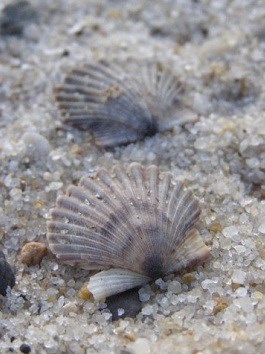
Photo by Scott Buchanan Marine invertebrates often serve as symbols of seashore environments. Their value is more than emblematic though, as a wide-variety of species are of significant ecological and economic importance. Many marine invertebrates are filter feeders meaning they siphon small food particles from the water column into their digestive systems. Though this type of feeding system is difficult to gauge with the naked eye, it plays an enormous role in marine ecology. As these animals filter great volumes of water and consume much of the zoo- and phytoplankton in it, they greatly shape the chemical and biotic composition of a given system. Further highlighting the importance of marine invertebrates is the fact that shellfishing is an important industry in Massachusetts. Protected Seashore salt marshes and estuaries serve as critical habitat for oysters, scallops, and clams (among many other vertebrate species). Salt marsh restoration projects initiated by the Park Service seek to expand the amount and quality of habitat available for these marine species. |
Last updated: January 30, 2018
